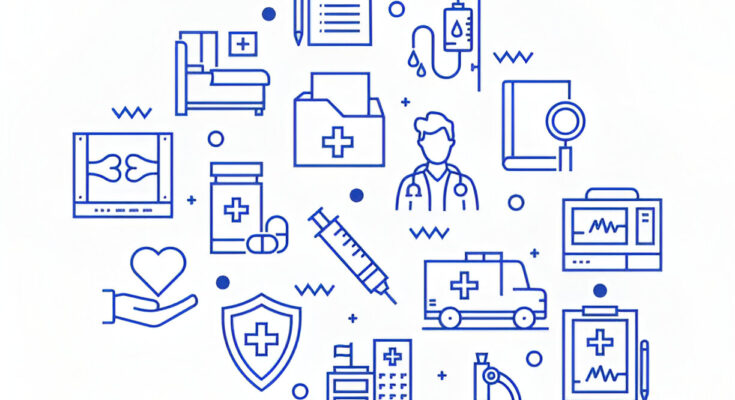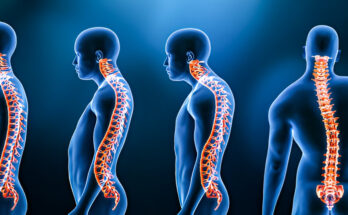Introduction:
The understanding and treatment of mental health have evolved significantly over the years. Modern advancements in science, technology, and holistic approaches have provided new pathways to improve mental well-being. While traditional therapy and medications remain essential, emerging treatments are transforming how individuals manage and recover from mental health conditions. In this blog, we explore the innovative and evidence-based treatments available today, offering hope and solutions for those seeking mental wellness.
1. Psychotherapy:
The Cornerstone of Mental Health Treatment Psychotherapy remains one of the most effective ways to address mental health challenges. Advances in therapy techniques have made it more accessible and tailored to individual needs:
Cognitive Behavioral Therapy (CBT): CBT focuses on identifying and changing negative thought patterns and behaviors. It’s highly effective for conditions such as anxiety, depression, and PTSD.
Dialectical Behavior Therapy (DBT): Originally designed for borderline personality disorder, DBT is now used to treat a variety of conditions by teaching emotional regulation, distress tolerance, and interpersonal effectiveness.
Eye Movement Desensitization and Reprocessing (EMDR): EMDR is a structured therapy that helps individuals process and heal from traumatic experiences.
Online Therapy Platforms: With the rise of telehealth, platforms like BetterHelp and Talkspace have made therapy more accessible, especially for those in remote areas.
2. Medications:
Targeted Relief for Mental Health Conditions Medications can play a crucial role in managing symptoms, particularly for moderate to severe mental health conditions. Advances in pharmacology have introduced more effective and tolerable options:
- Antidepressants: Selective serotonin reuptake inhibitors (SSRIs) and serotonin-norepinephrine reuptake inhibitors (SNRIs) are commonly used for depression and anxiety.
- Mood Stabilizers: Medications like lithium are essential for managing bipolar disorder.
- Antipsychotics: Atypical antipsychotics are effective for conditions like schizophrenia and severe mood disorders.
- Personalized Medicine: Pharmacogenomics, which tailors medications based on genetic testing, is gaining traction, reducing trial-and-error prescribing.
3. Neurostimulation Therapies:
Cutting-Edge Treatments For individuals who don’t respond to traditional therapies, neurostimulation offers promising alternatives:
- Transcranial Magnetic Stimulation (TMS): TMS uses magnetic fields to stimulate nerve cells in the brain, effectively treating major depressive disorder (MDD).
- Electroconvulsive Therapy (ECT): Though historically controversial, modern ECT is safe and highly effective for severe depression and treatment-resistant conditions.
- Deep Brain Stimulation (DBS): Primarily used for neurological disorders like Parkinson’s, DBS is now being explored for OCD and depression.
- Vagus Nerve Stimulation (VNS): VNS involves electrical stimulation of the vagus nerve, showing potential for treatment-resistant depression and anxiety.
4. Digital and Technological Innovations:
Technology is revolutionizing mental health care, offering tools that complement traditional treatments:
- Mental Health Apps: Applications like Headspace and Calm provide guided meditations, stress management techniques, and mindfulness exercises.
- Virtual Reality (VR) Therapy: VR is being used to treat PTSD, phobias, and anxiety disorders by creating controlled environments for exposure therapy.
- AI-Powered Tools: Artificial intelligence aids in early diagnosis, symptom tracking, and personalized treatment plans through platforms like Woebot.
- Wearable Devices: Devices that monitor physiological data, such as heart rate and sleep patterns, help individuals and clinicians track mental health progress.
5. Holistic and Lifestyle Approaches:
A growing recognition of the mind-body connection has led to holistic treatments that address overall wellness:
- Mindfulness-Based Stress Reduction (MBSR): MBSR combines meditation and yoga to reduce stress and enhance emotional well-being.
- Nutritional Psychiatry: Emerging research highlights the role of diet in mental health. Foods rich in omega-3s, probiotics, and antioxidants can positively impact mood and cognition.
- Exercise as Medicine: Regular physical activity, especially aerobic exercises, has been proven to reduce symptoms of depression and anxiety.
- Sleep Therapy: Cognitive behavioral therapy for insomnia (CBT-I) addresses sleep disturbances, which are often linked to mental health conditions.
6. Peer Support and Community Programs:
Social connection is a vital component of mental wellness. Programs fostering peer support are increasingly recognized for their therapeutic benefits:
- Support Groups: Group therapy or community-based support groups provide shared experiences and encouragement.
- Peer Mentorship: Programs pairing individuals with mentors who have overcome similar challenges foster hope and resilience.
- Community Wellness Initiatives: Workshops, recreational activities, and wellness events bring people together to promote mental health awareness and engagement.
7. Alternative and Complementary Therapies:
While not substitutes for evidence-based treatments, alternative therapies can complement traditional approaches:
- Acupuncture: This ancient practice may help reduce symptoms of anxiety and depression by stimulating specific points on the body.
- Art and Music Therapy: Creative therapies allow individuals to express emotions and find healing through artistic outlets.
- Animal-Assisted Therapy: Interaction with therapy animals can reduce stress, anxiety, and feelings of loneliness.
- Aromatherapy: Essential oils, such as lavender and chamomile, are used to promote relaxation and reduce stress.
8. Addressing Stigma Through Education:
Modern treatments are only effective if individuals feel empowered to seek help. Efforts to reduce stigma around mental health are critical:
- Awareness Campaigns: Initiatives like World Mental Health Day highlight the importance of seeking support.
- Educational Programs: Schools, workplaces, and communities offering mental health education help normalize discussions and reduce misconceptions.
- Media Representation: Positive and accurate portrayals of mental health recovery in media contribute to a more accepting society.
Conclusion:
Modern treatments for mental wellness offer a diverse array of options, from cutting-edge technologies to time-tested therapeutic practices. The key is finding a combination of treatments that work for the individual, guided by professional advice and personal preferences. As we continue to innovate and expand our understanding of mental health, the future holds even more promise for effective, accessible, and holistic care. Remember, seeking help is a sign of strength, and with the right resources, mental wellness is achievable for everyone.




